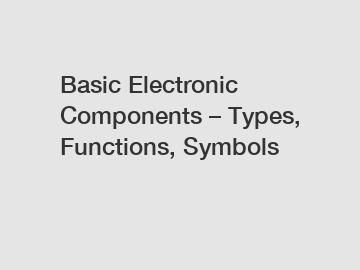Forklift Battery Maintenance: Do's and Don'ts
Forklifts are indispensable in warehouses and industrial settings, and their performance heavily relies on the condition of their batteries. Proper maintenance of forklift batteries not only ensures optimal performance but also extends their lifespan. Understanding the do's and don'ts of forklift battery care is crucial for efficiency and safety in operations.
Do's:
Follow Manufacturer Guidelines: Always adhere to the manufacturer's guidelines and recommendations for battery maintenance. These guidelines typically include charging procedures, watering schedules, and safety precautions.
Regular Inspections: Conduct routine inspections of the battery, checking for signs of corrosion, leaks, or damage. Promptly address any issues to prevent further damage or safety hazards.
Proper Charging: Charge the battery according to the manufacturer's specifications. Overcharging or undercharging can lead to decreased battery life and performance. Invest in a suitable charger designed for forklift batteries.
Watering: Check the water level in the battery cells regularly, especially in hot environments or during heavy usage. Add distilled water as needed to maintain the recommended level, typically above the plates but below the vent wells.
Cleaning: Keep the battery and its terminals clean and free from debris, dirt, and corrosion. Regularly clean the terminals with a wire brush and a solution of baking soda and water to prevent electrical resistance and ensure proper connections.
Safety Precautions: Always wear appropriate personal protective equipment (PPE), such as gloves and safety glasses, when handling batteries. Follow proper lifting techniques and avoid smoking or open flames near batteries.
Don'ts:
Related links:How Solar emergency charging lamp Work?
How Does automotive agm start-stop battery Work?
How much do you know about charging piles?
Exploring the Advantages of 40kW DC Chargers for Electric Vehicles
Lifepo4 delivery issue.Anyone has experience? - Lowyat Forum
LiFePO4 Vs Lithium Ion & Other Batteries & Why ...
Ryobi 6-port charger, not for battery storageOver-discharging: Avoid running the battery to complete discharge regularly, as it can shorten the battery's lifespan and lead to sulfation of the plates. Implement a proper battery rotation schedule to prevent over-discharging.
Mixing Battery Types: Never mix different types of batteries or battery voltages in the same forklift. Each forklift should use batteries of the same type, capacity, and age to ensure proper performance and charging compatibility.
Ignoring Signs of Damage: Don't ignore any signs of damage or abnormalities, such as bulging cases, cracked containers, or unusual odors. These could indicate internal problems that require immediate attention to prevent safety hazards or equipment damage.
Improper Storage: Avoid storing batteries in extreme temperatures or environments with high humidity levels. Store batteries in a clean, dry, and well-ventilated area away from direct sunlight and sources of heat.
Using Tap Water for Watering: Never use tap water or other mineral-rich water sources for watering batteries, as they can contain impurities that may damage the battery cells. Stick to distilled water to prevent mineral buildup and extend battery life.
Proper maintenance of forklift batteries is essential for ensuring reliable performance, maximizing lifespan, and promoting workplace safety. By following the do's and don'ts outlined above, businesses can optimize their forklift operations and minimize the risk of costly downtime and repairs associated with battery issues.
Top Custom Electronic Components Trends in 2024
ABB / Power One Aurora Solar Inverter Faults and Repairs
Key Questions to Ask When Choosing a PCB Design Software
4 Tips to Select the Right Custom Software Development Partner
Useful Guide - What Do You Need to Know About LED PCBs
What is the difference between ABB ACS and ACQ?
How PCB Copy and Redesign Solves Design Challenges












